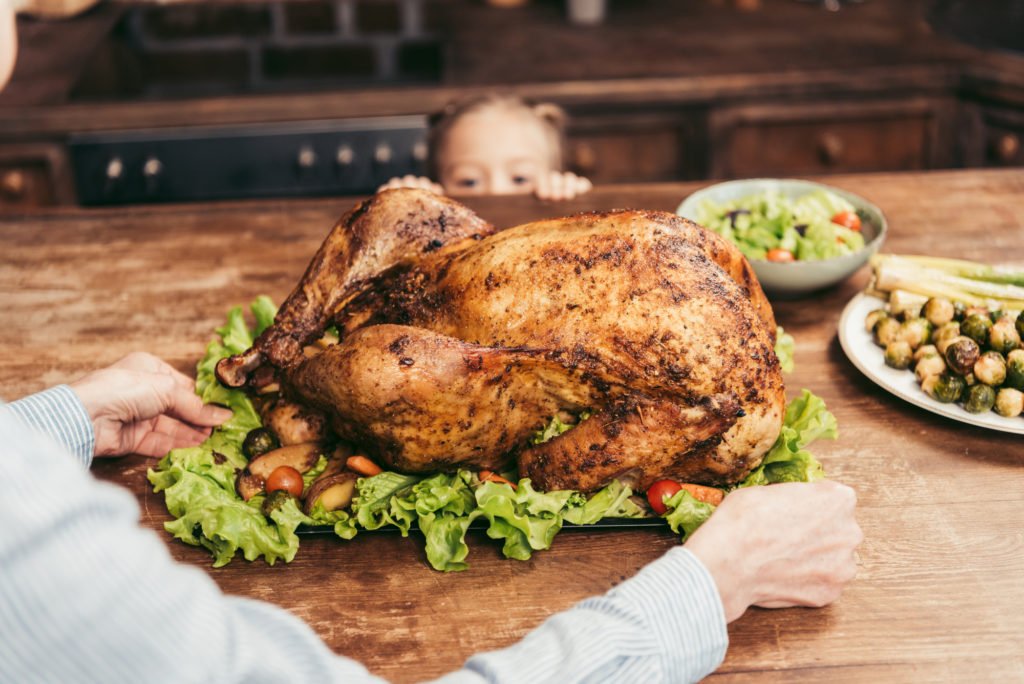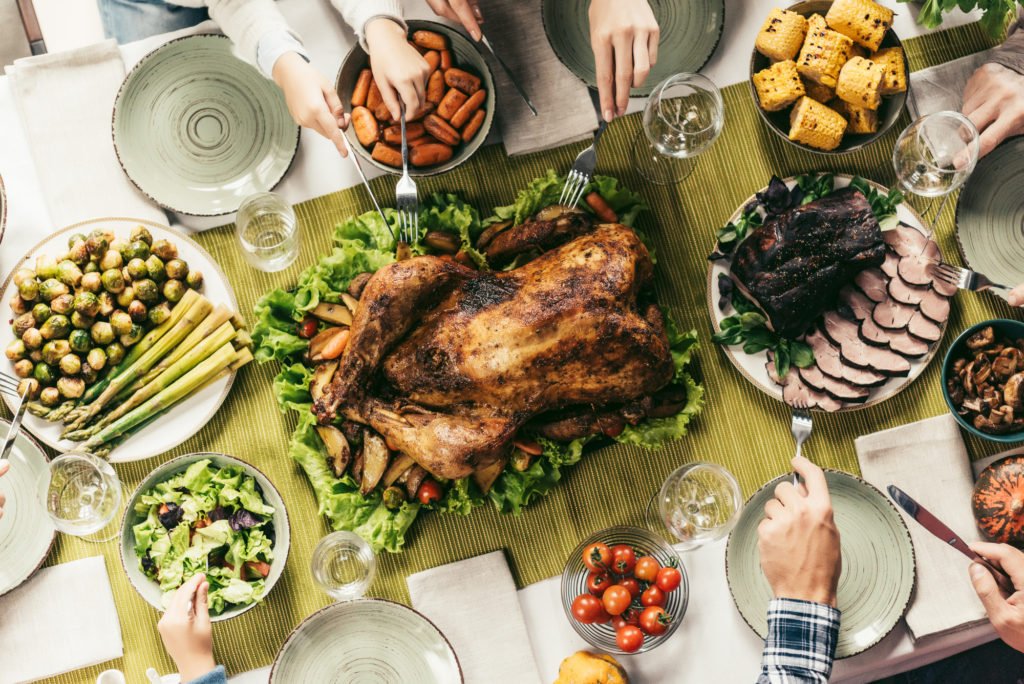It’s that time of the year again. A wide variety of foods, drinks, and nothing but wonderful people to celebrate it with. That’s what the holiday season is all about. Every country and culture has unique foods specific to their festivities. Usually, during that celebratory period, people indulge in rich and delicious dishes. And we can find a pattern to the type of foods people consume during the festive season. Protein-rich and costly meats, sugar-filled sweets and cakes, and rare wines and local liquor make the cut. In this article, we will have a look at one of the first names that come to mind when we talk about the holiday season – Turkey. Turkey meat is so popularly consumed during the holidays, not just in the Americas but also in Europe. I will discuss the health benefits and significance of turkey and how it became synonymous with the term festival food (Thanksgiving Food, to be more precise).
Health Benefits of Turkey Meat

Protein-Rich Meat: It is common knowledge that animal meat, in general, is a good source of protein. But, the biological value and the readily absorbable protein from different meats vary. Proteins with high biological value will have vital amino acids in an appropriate sequence and usable amounts. In that sense, studies reveal that turkey meat contains proteins with high biological value compared to red meats. Eating a hundred grams of turkey meat will supply your body with around 30 grams of protein. So, if you are looking to pump up your biceps or even just to gain some healthy weight, turkey meat will prove to be perfect.
Loaded with Minerals: Access to essential minerals is not too difficult, to be honest. Iron, magnesium, potassium, etc., will be readily available in red meats. But, excess consumption of red meats has a downside. Red meats will be high in saturated fats and are bad for cholesterol. When cooked at high temperatures, some compounds might prove to be carcinogenic. That is where white meat like turkey outshines. Turkey meat contains generous amounts of zinc, selenium, sodium, and Iron. Zinc is a vital mineral involved in several primary functions of the body like protein synthesis, increases immunity by expediting immune cell buildup, etc. Selenium is important for hormone production, which in turn impacts the metabolism of the body. Sodium is another vital mineral present, but as known to us, it needs to be taken in moderation. Sodium present in turkey is less compared to the red meats or processed meats. Therefore, processed turkey meats (or any processed meats) will contain high sodium content because manufacturers add salt as taste enhancers. Iron is present in turkey, which helps in the production of hemoglobin. It is the fundamental block of red blood cells and is required for efficient oxygen transportation to the cells. With few other trace minerals like phosphorus, potassium, magnesium, etc., turkey meat will fulfill the body’s mineral requirement with ease.
Vitamin Reservoir: Turkey meat includes diverse vitamins requisite to a healthy human body. Especially, copious amounts of B vitamins are present in turkey. Vitamin B3, otherwise known as Niacin, energizes cells and facilitates the transfer of brain signals. Vitamin B6 also does a similar function by stimulating the production of neurotransmitters. Added to that, Vitamin B6 is necessary for the formation of amino acids. Amino acids are the primitive blocks of proteins. Then, Vitamin B12 comes into action by assisting in the production of DNA and RBCs.
Weight Regulation: We know turkey contains a good amount of proteins, which are important for weight gain. Our body does not have the capability to store proteins and use them at a later time. Regular intake of turkey will help in a “healthy weight gain.” The weight we gain should improve our bodies physically and mentally. Turkey meat contains good proteins but has a very low-fat content compared to red meats. It even has lower fat content than chicken. Avoid the fatty skin and feel free to consume skinless white turkey meat to access all the protein goodness. For people considering weight loss, too, turkey meat would be apt. The meat protein would take time for digestion and comforts you with a sense of fulfillment after your meal. This will also help you avoid red meats, which will have their fair share of fat and bad cholesterol.
Why Do We Eat Turkey On Thanksgiving?

Turkey meat, clearly, is very nutritional and good for health. But what makes it the go-to meat during the holiday season? Populations have consumed it across continents during their favorite festivals for ages. Turkey meat being a popular poultry dish, is available all year round. Stuffed turkey is not only consumed during Thanksgiving but also for Christmas dinner. It is even popular across Europe. But having turkey during Thanksgiving has a history attached to it.
History of Thanksgiving Dinner: Thanksgiving and turkey are almost inseparable, for the tradition dates back to colonial times. Thanksgiving is one of the most widely celebrated holidays in North Americas. Nowadays, it is a secular holiday where people get together and celebrate the day with their family and friends. The main event of the day would be the Thanksgiving dinner. And a roast turkey is the quintessential part of the meal. People prepare the turkey meat for days before Thanksgiving, right from purchasing the right weighing bird in advance to preparations like brining it overnight. But as I informed you earlier, the whole event has historical importance.
Pilgrims – the first European settlers in America – reached the shores of the continent aboard the ship Mayflower. On reaching the new-found world, they made a pact with the native Wampanoag tribe to coexist peacefully. And as a token of thanks, threw a three-day feast for supporting them with the land and its resources. The unverified myth explains that the Wampanoag tribesmen brought turkey as a gift to the feast. And since then, the tradition of Thanksgiving has been followed to thank the previous year’s harvest and good deeds. At least, this is how the school textbooks portray the history of Thanksgiving Day. Even though I would like to stray away from anything political in a food blog, it is essential to know that it is not the whole truth. Many native American tribes do not celebrate Thanksgiving Day owing to the numerous atrocities (racist and otherwise) their ancestors had to go through. It is fair and necessary to acknowledge the racial discrimination experienced by the current generation of Native Americans as well.
So, switching back to Thanksgiving and turkey, people buy a whole turkey and roast it. Recipe, size, and preparation methods differ from family to family. But a whole roast turkey is a must. The leftovers are frozen and used later. Eating anything turkey, ranging from pulled turkey sandwiches to cold turkey salad, throughout that week will not stop people from having a whole roast turkey the next Thanksgiving.